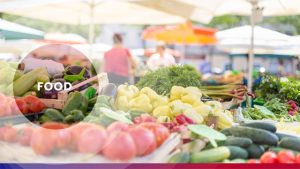 The European Commission (EC) has allocated Euro 600 million to finance immediate humanitarian food aid, food production and resilience of food systems in the most vulnerable countries in Africa, the Caribbean and the Pacific (ACP).
The European Commission (EC) has allocated Euro 600 million to finance immediate humanitarian food aid, food production and resilience of food systems in the most vulnerable countries in Africa, the Caribbean and the Pacific (ACP).
“This will help partner countries and vulnerable people to cope with the unjust consequences of Russia’s war of aggression against Ukraine, notably the current food security crisis and related economic shock,” the EC in a statement, adding that the funds are being made available under the European Development Fund (EDF).
“The EU’s swift and comprehensive response to the current food insecurity in several vulnerable partner countries of the African, Caribbean and Pacific area demonstrates our strong solidarity towards our partners, in particular in Africa,” said Jutta Urpilainen, the EU’s Commissioner for International Partnerships.
“It helps shoulder the consequences felt worldwide of Russia’s war of aggression against Ukraine. In the short-term, we are helping families with food and nutrition assistance and helping countries to buy the food they need; as part of the Global Gateway strategy, we also work on solutions to address current and future risks by investing in local sustainable food systems to enhance resilience,” Urpilainen added.
Commissioner for Crisis Management Janez Lenarčič said the global food insecurity is the EU’s utmost concern.
“Data shows tens of millions more people are facing food shortages compared to an already difficult last year. The Russian invasion of Ukraine dramatically exacerbated the situation for the most vulnerable in the world, who are already facing the consequences of armed conflicts, the effects of climate change and the COVID-19 pandemic,” she added.
She said famine is knocking on the door in Somalia and the newly-allocated funds will help those in dire situations meet their emergency food needs.
“The EU remains committed to supporting the most vulnerable. However, humanitarian aid cannot substitute for efforts needed to increase the resilience of most vulnerable populations. Sustainable development-oriented solutions to end hunger are key.”
The EC said as part of Team Europe’s Response to Global Food Insecurity, the funding will support people in African, Caribbean and Pacific countries, where the humanitarian needs are the highest and where programs to sustainably enhance food security and resilience were identified.
More precisely, the EC said the funding will be allocate Euro 27 million for food production and resilience in the Caribbean.
For emergency food assistance, the EC said Euro6.5 million will go to Haiti, and three million Euro million for Caribbean countries, such as the Dominican Republic.
The EC said a Euro million transversal component will ensure coordination between the different programs and amplify their impact at the continental and regional level.
“This will be done by focusing on sustainable finance and investments for sustainable agriculture and agri-value chains,” it said.
The EC said a further Euro 100 million component will provide macroeconomic support to African, Caribbean and Pacific Low-Income Countries by leveraging, via a contribution to the International Monetary Fund’s Poverty and Reduction Trust, concessional loans, “thereby creating fiscal space to help these countries address the food crisis.”
The EC said the world is facing a global food crisis, aggravated by Russia’s war of aggression against Ukraine.
The recently published mid-year update of the Global Report on Food Crises estimates that up to 205.1 million people currently face high levels of acute food insecurity in 45 countries covered by the Global Report on Food Crises 2022.
